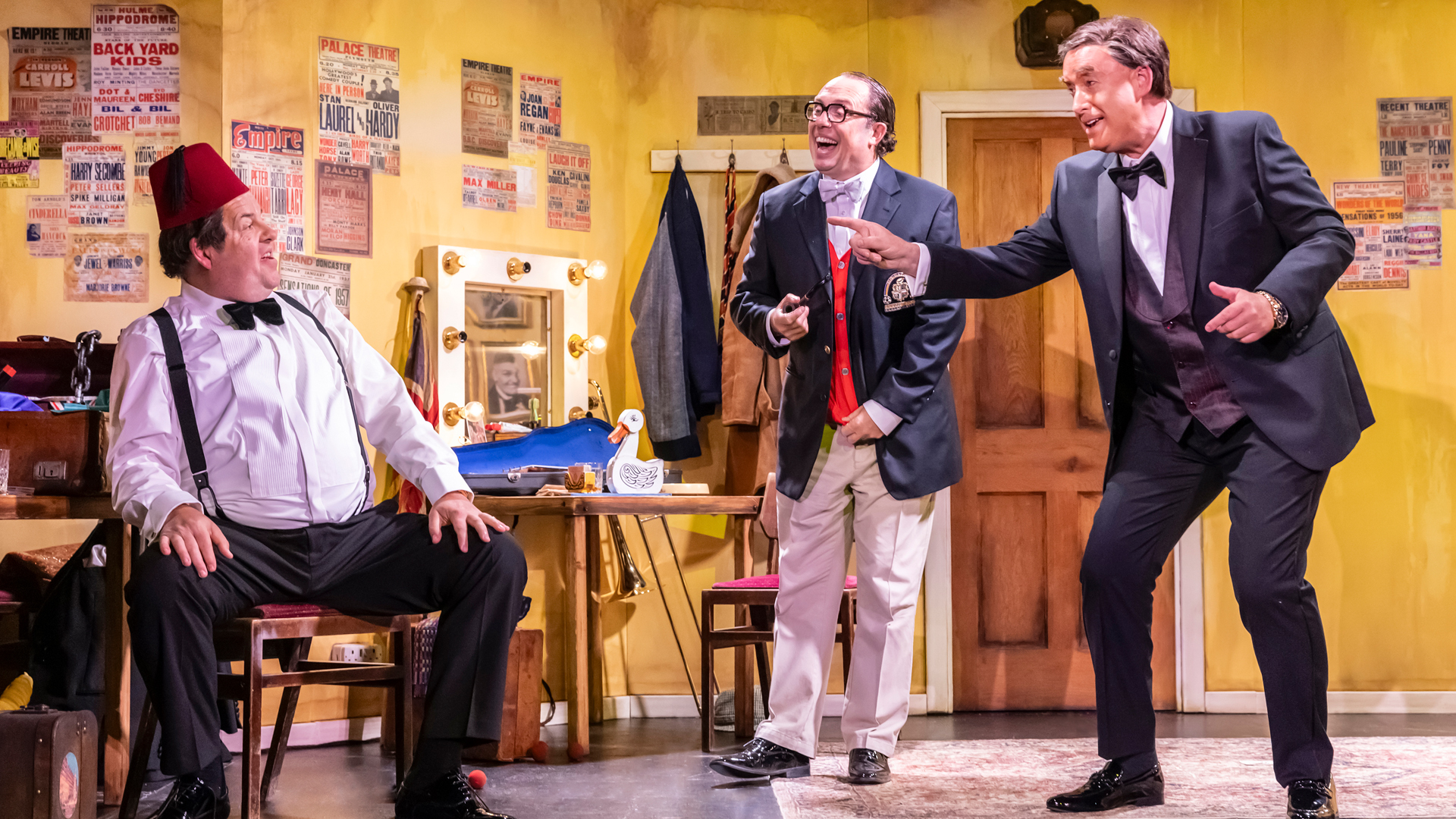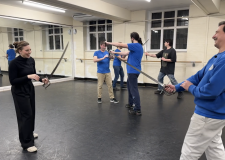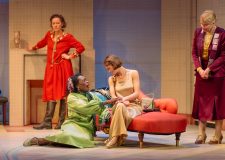THE LAST LAUGH

Paul Hendy’s darkly comic investigation of the nature of comedy is a fine evening of entertainment that works on many levels. For those of us of a certain age it is a trip down memory lane were comedy fell into the category of light entertainment, an age before alternative, an era when our televisions were filled with variety acts suitable for the whole family. A time when even faintly lewd innuendo was frowned upon.
For those of a more academic bent the play is an analysis of what makes good or great comedy, how does a joke work and does the thing balance on the writing or the performer. And to do this we have a scenario were three comedy greats, Eric Morecambe, Bob Monkhouse and Tommy Cooper meet in a fictional dressing room before going on stage. It never happened of course but it poses that great “what if?”.
First out comes Cooper, Damian Williams, vest and underpants… and chicken feet. A wonderful moment with no words, a fine exposition of the art of silent humour that Williams has mastered. If you’re going to write a play about familiar comedy greats then the cast have to inhabit the roles with skill and he really does. Even though he is not exactly a look alike, his presence is pure Cooper, as much about the silences as it is about the gags. And that presence is steeped in a sadness, the drinking, the grabbing of his arm, those of us old enough can already see where this is going.
Soon he is joined by Bob Monkhouse, Simon Cartwright, whose performance is not just an impersonation, it’s almost like he is possessed by the man, verbally, physically, in every sense this is an extraordinary rendering of a man whose personal life is tinged with sadness and here we see him, the great gag writer wondering if he will ever be remembered or loved. There he is chiselling his work to perfection, but fretting that he himself is not funny.
Finally we get Eric Morecambe, Bob Golding, who looks the part, sounds the part and has embraced the strange comedic physicality of Morecambe. It is again a fine portrayal and one that is used to explore the comedy of double acts, funny man and straight man.
All three are exceptionally good, all three deliver lines, gags that for many of us are very familiar, and it works. That said Cooper’s first genuine verbal joke about a wife asking her husband if he has noticed any difference, gets and odd response, hardly a titter from the audience, most of us of the right age to remember the comedy of the time. Maybe we have become so conditioned, no doubt rightly so, to not laugh at material that is in essence misogynistic. It for me was an important moment in the whole that turned what could have been an evening of clever impressions into a rather more serious piece of theatre.
Beautifully designed and directed, 85 minutes fly by, moments of fun peppered with sadness and the occasional song, and for the great part of that time the structure works. From time to time I felt that the script fell into the trap of delivering rather too long strings of jokes, but when the jokes are so good who can be blamed for ramming them all in.
As an evening of entertainment with a short interval we are then given a Q&A, the play was originally festival length, so for a theatrical run with a lightly extended script, a device was required to fill the time, and it works, questions answered, anecdotes delivered it make for a very satisfying night at the theatre.
Andrew Kay
Theatre Royal Brighton
12 February
Rating:





















